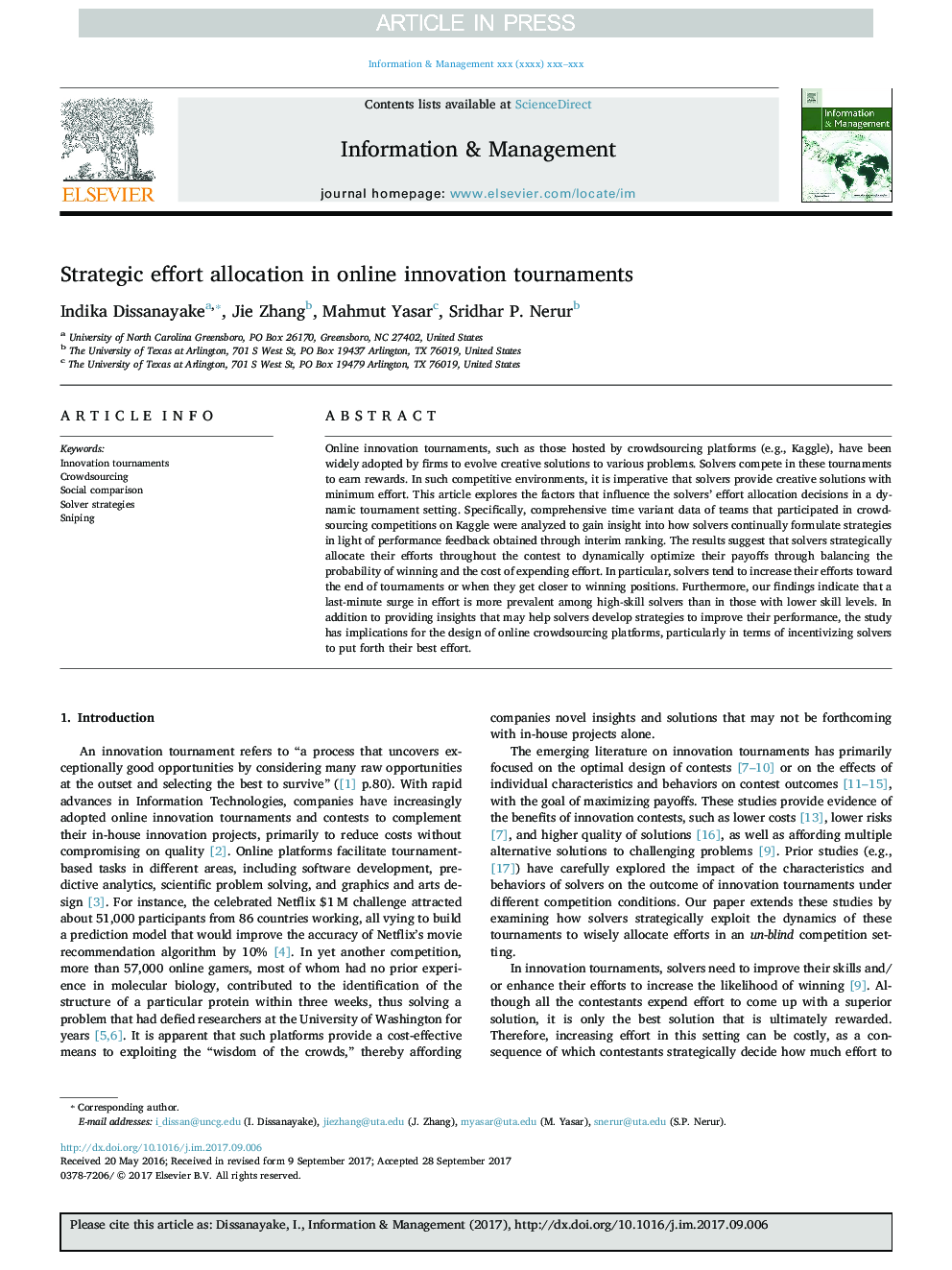| Article ID | Journal | Published Year | Pages | File Type |
|---|---|---|---|---|
| 6948824 | Information & Management | 2018 | 11 Pages |
Abstract
Online innovation tournaments, such as those hosted by crowdsourcing platforms (e.g., Kaggle), have been widely adopted by firms to evolve creative solutions to various problems. Solvers compete in these tournaments to earn rewards. In such competitive environments, it is imperative that solvers provide creative solutions with minimum effort. This article explores the factors that influence the solvers' effort allocation decisions in a dynamic tournament setting. Specifically, comprehensive time variant data of teams that participated in crowdsourcing competitions on Kaggle were analyzed to gain insight into how solvers continually formulate strategies in light of performance feedback obtained through interim ranking. The results suggest that solvers strategically allocate their efforts throughout the contest to dynamically optimize their payoffs through balancing the probability of winning and the cost of expending effort. In particular, solvers tend to increase their efforts toward the end of tournaments or when they get closer to winning positions. Furthermore, our findings indicate that a last-minute surge in effort is more prevalent among high-skill solvers than in those with lower skill levels. In addition to providing insights that may help solvers develop strategies to improve their performance, the study has implications for the design of online crowdsourcing platforms, particularly in terms of incentivizing solvers to put forth their best effort.
Related Topics
Physical Sciences and Engineering
Computer Science
Information Systems
Authors
Indika Dissanayake, Jie Zhang, Mahmut Yasar, Sridhar P. Nerur,
